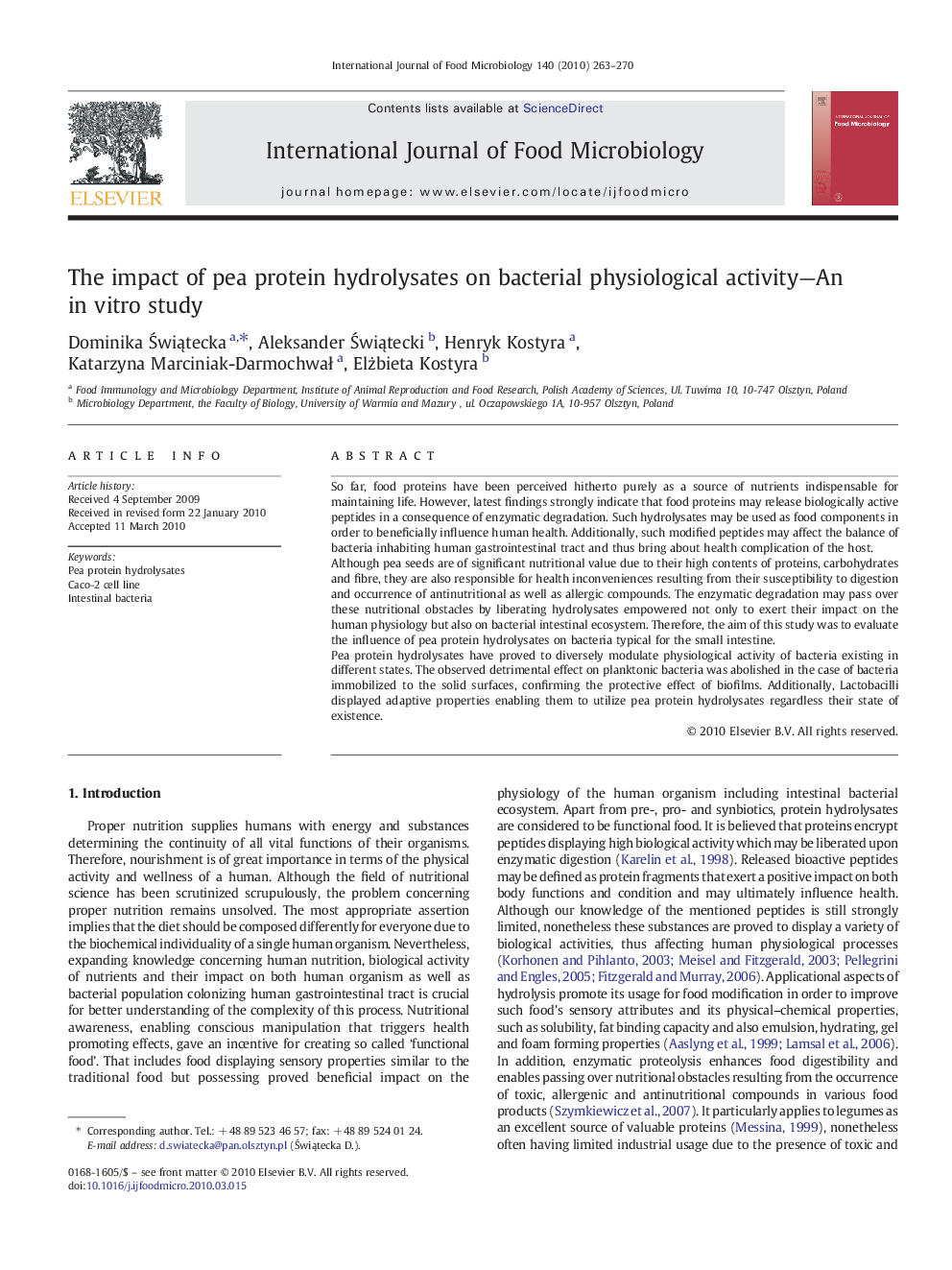| کد مقاله | کد نشریه | سال انتشار | مقاله انگلیسی | نسخه تمام متن |
|---|---|---|---|---|
| 4368231 | 1616686 | 2010 | 8 صفحه PDF | دانلود رایگان |

So far, food proteins have been perceived hitherto purely as a source of nutrients indispensable for maintaining life. However, latest findings strongly indicate that food proteins may release biologically active peptides in a consequence of enzymatic degradation. Such hydrolysates may be used as food components in order to beneficially influence human health. Additionally, such modified peptides may affect the balance of bacteria inhabiting human gastrointestinal tract and thus bring about health complication of the host.Although pea seeds are of significant nutritional value due to their high contents of proteins, carbohydrates and fibre, they are also responsible for health inconveniences resulting from their susceptibility to digestion and occurrence of antinutritional as well as allergic compounds. The enzymatic degradation may pass over these nutritional obstacles by liberating hydrolysates empowered not only to exert their impact on the human physiology but also on bacterial intestinal ecosystem. Therefore, the aim of this study was to evaluate the influence of pea protein hydrolysates on bacteria typical for the small intestine.Pea protein hydrolysates have proved to diversely modulate physiological activity of bacteria existing in different states. The observed detrimental effect on planktonic bacteria was abolished in the case of bacteria immobilized to the solid surfaces, confirming the protective effect of biofilms. Additionally, Lactobacilli displayed adaptive properties enabling them to utilize pea protein hydrolysates regardless their state of existence.
Journal: International Journal of Food Microbiology - Volume 140, Issues 2–3, 15 June 2010, Pages 263–270